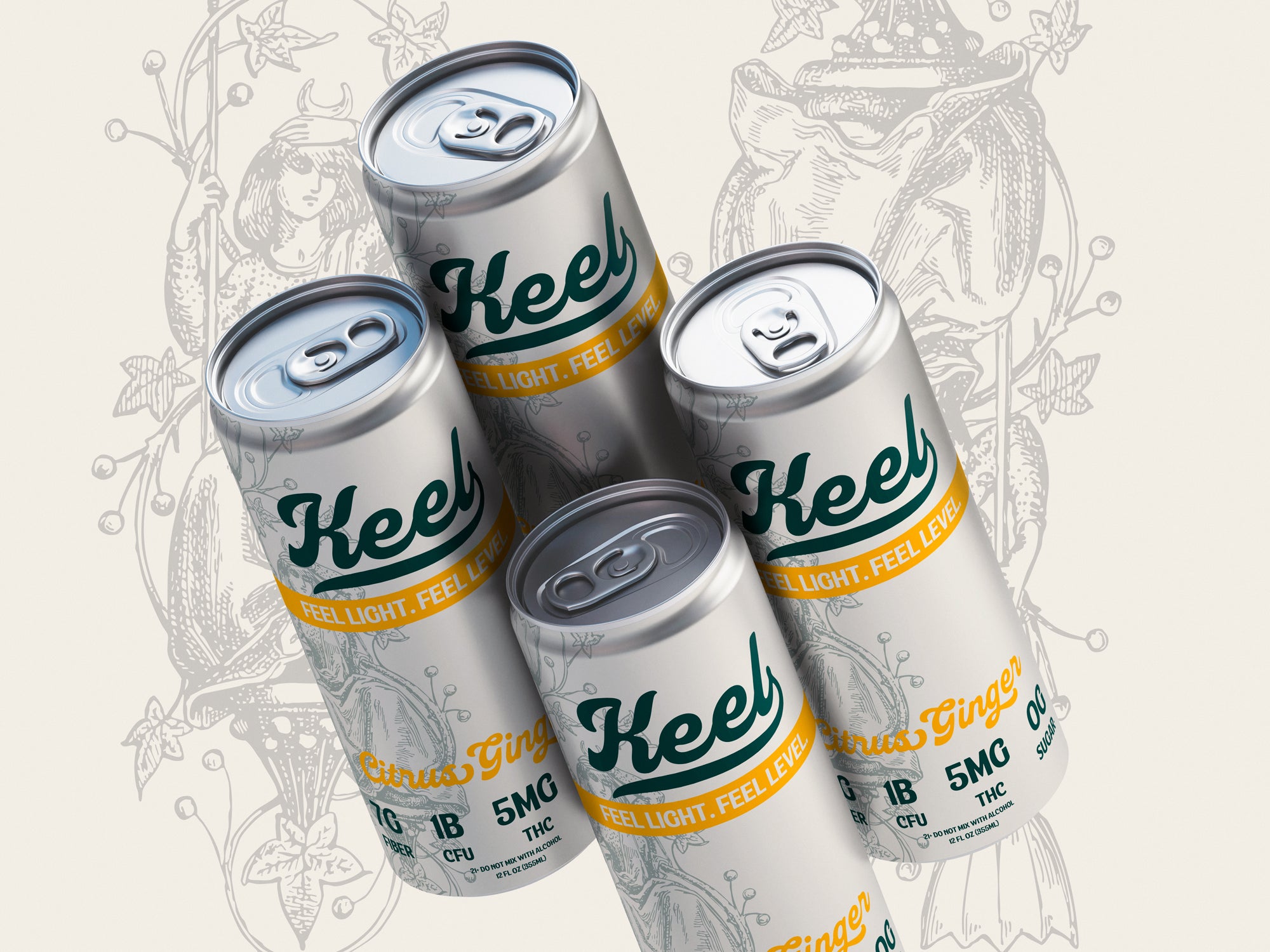TL;DR
Bacillus coagulans is a spore-forming probiotic that survives in shelf-stable drinks. Unlike fragile Lactobacillus strains, B. coagulans forms protective spores that tolerate heat, stomach acid, and 12–18 months of room-temp storage. Look for 1B+ CFU guaranteed at end of shelf life, minimal added sugar, and specific strain codes (like GBI-30). Safe for daily use; no refrigeration required.
Bacillus coagulans is a spore-forming probiotic bacteria that remains dormant in harsh conditions and activates in your gut. Unlike common probiotic strains (Lactobacillus, Bifidobacterium), B. coagulans forms protective endospores that survive stomach acid, heat, and shelf storage without refrigeration. This resilience makes it ideal for probiotic drinks sold at room temperature. B. coagulans supports digestive regularity, reduces bloating, and helps maintain gut microbiome balance. Look for drinks with at least 1 billion CFU guaranteed at end of shelf life, minimal added sugar (under 5 grams), and named strain codes like GBI-30 or MTCC-5856, which indicate clinical testing and patent protection.
What Bacillus coagulans Is
Bacillus coagulans is a gram-positive, spore-forming probiotic bacteria originally discovered in spoiled canned milk in 1915. It was initially classified as Lactobacillus sporogenes due to its lactic-acid-producing properties, but genetic testing in the 1990s confirmed it belongs to the Bacillus genus. The defining feature of B. coagulans is its ability to form endospores—dormant, highly resistant structures that protect bacterial DNA and metabolic machinery during unfavorable conditions.
Endospores are survival capsules. When B. coagulans encounters heat, low pH, oxygen exposure, or dehydration, it switches into spore mode. The spore coat (made of keratin-like proteins) shields the bacterial core from environmental damage. In this state, B. coagulans can survive boiling water (100°C), stomach acid (pH 1.5–3), and months of room-temperature storage. Once the spore reaches the neutral pH and warm temperature of your intestines, it germinates—the protective coat breaks open, and the bacteria "wakes up" to become metabolically active.
This spore-forming ability separates B. coagulans from fragile probiotic strains. Lactobacillus acidophilus and Bifidobacterium lactis die rapidly when exposed to heat, oxygen, or stomach acid. B. coagulans thrives under the same conditions. A 2022 study in Frontiers in Microbiology found that B. coagulans spores retained 92% viability after 18 months at 25°C (77°F), while Lactobacillus strains lost over 80% viability in the same timeframe. This makes B. coagulans the probiotic of choice for functional beverages, protein powders, and shelf-stable supplements.
B. coagulans produces lactic acid in your gut, which lowers intestinal pH and creates an environment hostile to harmful bacteria like E. coli and Clostridium difficile. It also synthesizes short-chain fatty acids (SCFAs) that nourish your intestinal lining and reduce inflammation. Unlike some probiotics that transiently pass through your system, B. coagulans can temporarily colonize your colon for several days, extending its benefits beyond a single dose.
Why Bacillus coagulans Suits Shelf-Stable Drinks
Most probiotics can't survive in beverages stored at room temperature. Heat, oxygen, and acidity kill non-spore strains within weeks of bottling. B. coagulans solves this problem with three key advantages: pH tolerance, heat resistance, and oxygen stability.
pH tolerance: Many probiotic drinks have acidic pH levels (3–4) from citrus juice, apple cider vinegar, or fermentation. Non-spore strains die in acidic beverages over time. B. coagulans spores remain dormant and protected in low pH, only germinating when they reach the neutral pH (6.5–7.5) of your small intestine. This allows brands to formulate tart, flavorful drinks without killing the probiotics during storage. Research published in Journal of Food Science (2021) showed B. coagulans spores maintained full viability in pH 3.5 beverages for 12 months, while Lactobacillus strains degraded within 8 weeks.
Heat resistance: Summer shipping and warehouse storage regularly expose drinks to temperatures above 30°C (86°F). Non-spore probiotics die at these temperatures. B. coagulans spores tolerate heat up to 90°C (194°F) for short periods. Even extended exposure to 40°C (104°F)—common in hot climates—doesn't significantly reduce spore viability. This heat stability eliminates the need for cold-chain logistics (refrigerated trucks, coolers), reducing costs and making probiotic drinks accessible in convenience stores, gyms, and gas stations.
Oxygen stability: Liquid formats expose bacteria to dissolved oxygen, which generates reactive oxygen species (ROS) that damage bacterial cell membranes. Spore coats protect B. coagulans from oxidative stress. Non-spore strains require nitrogen flushing or vacuum sealing to survive in cans, and even then they degrade faster than B. coagulans. This oxygen tolerance simplifies manufacturing and extends shelf life to 18 months without special packaging.
These three factors make B. coagulans the dominant probiotic in shelf-stable drinks. Brands can ship products globally, stock them on retail shelves for months, and guarantee live bacteria at purchase—something impossible with fragile strains like Lactobacillus rhamnosus or Bifidobacterium longum.
What to Look For in a Bacillus coagulans Drink
Not all B. coagulans products are equal. Three criteria determine quality: CFU count with expiration guarantee, strain specificity, and added sugar levels.
CFU count (1 billion+ guaranteed at end of shelf life): Effective dosing for B. coagulans ranges from 1–5 billion CFU per serving. Studies on digestive health benefits typically use 2 billion CFU daily, but 1 billion CFU is sufficient for maintenance and regularity. The key is an expiration guarantee—labels should state "1 billion CFU guaranteed through expiration" or "viable at end of shelf life," not just "at time of manufacture." Brands that guarantee end-of-shelf-life CFU overfill their products (e.g., 2.5 billion at bottling to ensure 1 billion remains after 18 months), proving commitment to potency.
Strain specificity (look for GBI-30, MTCC-5856, or BC30): Generic "Bacillus coagulans" labels are red flags. Reputable products list specific strain codes that link to clinical research. GBI-30 (also marketed as BC30 by Ganeden) is the most studied B. coagulans strain, with over 25 published trials showing benefits for IBS, bloating, and immune support. MTCC-5856 (LactoSpore) is another well-researched strain with documented stability and efficacy. Strain codes indicate the bacteria underwent genetic identification, stability testing, and safety evaluation—generic strains may not have this backing.
Low added sugar (under 5 grams per serving): High sugar content defeats probiotic benefits by feeding harmful gut bacteria like Candida and causing blood glucose spikes. Choose drinks with 0–5 grams of added sugar. Natural sugars from fruit juice or prebiotic fibers (which appear as "sugars" on labels but aren't added sweeteners) are acceptable. Avoid drinks with cane sugar, high-fructose corn syrup, or agave as primary ingredients. Zero-sugar options sweetened with stevia, monk fruit, or erythritol work well if you tolerate sugar substitutes.
Bonus: Check for third-party testing. Brands that publish Certificates of Analysis (COAs) verifying CFU counts, strain identity, and contamination screening demonstrate transparency. COAs should be searchable by batch code and updated for every production run. Without COAs, CFU and strain claims are unverifiable.
How to Add Bacillus coagulans to Your Day
B. coagulans works best with consistent daily use. Here are simple ways to fit it into your routine:
Morning: Before breakfast or with coffee. Drink a probiotic beverage 15–30 minutes before your first meal. The empty stomach allows spores to pass quickly to your intestines, where they germinate and colonize. Pair with water to aid digestion. If you experience mild bloating in the first week (common as your gut adjusts), try drinking with a small snack instead of on an empty stomach.
Mid-afternoon: As a soda or energy drink replacement. Swap your 3 PM soda or coffee for a probiotic drink. You'll get gut health benefits without the sugar crash or caffeine jitters. Still, non-carbonated probiotic drinks are gentler on digestion than fizzy sodas, making them ideal for afternoon consumption when your stomach may be sensitive.
Evening: As an alcohol alternative. Use probiotic drinks as functional mocktails during social events or wind-down time. B. coagulans won't interfere with sleep (unlike caffeine), and the digestive support can offset heavy meals or stress-related gut issues. If your drink contains prebiotic fiber (like PHGG or resistant maltodextrin), evening consumption supports overnight gut bacteria fermentation, leading to easier morning bowel movements.
Post-workout: For recovery and hydration. B. coagulans paired with electrolytes or protein supports post-exercise gut recovery. Intense workouts temporarily disrupt gut barrier function; probiotics help restore balance and reduce exercise-induced inflammation. Choose drinks with 50–100 calories if using as a recovery beverage.
Consistency trumps timing. Whether you drink B. coagulans in the morning, afternoon, or evening, the key is daily use. Probiotics don't permanently colonize your gut—they pass through in 24–48 hours. Skipping days means losing the cumulative benefits of improved microbiome diversity and SCFA production. Aim for 6–7 days per week for best results.
Frequently Asked Questions
Is Bacillus coagulans safe for daily use?
Yes. B. coagulans is Generally Recognized as Safe (GRAS) by the FDA and has a long safety record in foods, beverages, and supplements. Clinical trials using 1–10 billion CFU daily for up to 12 weeks report no serious adverse effects. Mild, temporary gas or bloating may occur in the first 3–7 days as your gut microbiome adjusts, but this resolves quickly. B. coagulans is safe for healthy adults, children (consult dosing for kids), and elderly individuals. Avoid if you have a severely compromised immune system or are undergoing chemotherapy without medical clearance. Pregnant or nursing individuals should consult a healthcare provider, though B. coagulans is generally considered safe during pregnancy.
Does Bacillus coagulans need refrigeration?
No. B. coagulans spores are shelf-stable at room temperature for 12–18 months. Unlike Lactobacillus or Bifidobacterium strains, which require cold storage to stay alive, B. coagulans tolerates heat and ambient conditions without losing viability. You can store canned or bottled B. coagulans drinks in your pantry, gym bag, or car (though extreme heat above 50°C/122°F for prolonged periods may reduce potency). Refrigeration is optional—it may extend shelf life slightly but isn't necessary. This makes B. coagulans ideal for travel, camping, or keeping at your desk.
How long does it take for Bacillus coagulans to work?
Most people notice digestive improvements (reduced bloating, more regular bowel movements) within 5–10 days of daily use. Immune and anti-inflammatory benefits may take 4–6 weeks to become apparent. A 2020 study in Postgraduate Medicine found that participants taking 2 billion CFU B. coagulans GBI-30 daily experienced significant reductions in IBS symptoms (abdominal pain, bloating) after 8 weeks. Individual responses vary based on baseline gut health, diet, and stress levels. If you see no improvement after 4 weeks, try increasing to 2–3 billion CFU daily or pairing with prebiotic fiber to enhance colonization.
Can I take Bacillus coagulans with antibiotics?
Yes, and it's beneficial. Antibiotics kill both harmful pathogens and beneficial gut bacteria. Taking B. coagulans during and after antibiotic treatment helps restore gut flora faster. Space your probiotic dose 2–3 hours before or after your antibiotic to minimize kill-off. Continue B. coagulans for at least 2 weeks post-antibiotics. B. coagulans is more antibiotic-resistant than Lactobacillus strains due to its spore coat, so a higher percentage survives even when taken close to antibiotic doses. Some doctors recommend increasing to 5 billion CFU daily during antibiotic treatment.
What's the difference between Bacillus coagulans and Lactobacillus?
Bacillus coagulans forms spores; Lactobacillus does not. This makes B. coagulans shelf-stable, heat-resistant, and acid-tolerant, while Lactobacillus requires refrigeration and dies in harsh conditions. Both produce lactic acid and support gut health, but B. coagulans survives stomach acid better, making it more reliable in beverages and supplements. Lactobacillus strains (like L. rhamnosus, L. acidophilus) have more published research on specific conditions (e.g., antibiotic-associated diarrhea, vaginal health), while B. coagulans excels in general digestive support and IBS symptom relief. Choose B. coagulans for convenience and stability; choose Lactobacillus if targeting a specific strain-backed benefit and can maintain refrigeration.
Can I drink Bacillus coagulans if I'm lactose intolerant?
Yes. B. coagulans is not dairy-derived (despite its old name, Lactobacillus sporogenes). It's grown on non-dairy media and contains no lactose. Probiotic drinks with B. coagulans are typically dairy-free, vegan, and suitable for lactose-intolerant individuals. Always check the ingredient list—some probiotic drinks add whey or milk protein for flavor, but the B. coagulans itself is lactose-free. In fact, B. coagulans may help lactose-intolerant individuals digest small amounts of dairy by producing lactase enzyme in the gut.
Updated On
October 22, 2025
What Changed
- Added 2022 Frontiers in Microbiology study on B. coagulans spore viability over 18 months
- Added 2021 Journal of Food Science data on pH tolerance in acidic beverages
- Clarified strain codes (GBI-30, MTCC-5856, BC30) and clinical research backing
- Expanded daily routine section with timing options (morning, afternoon, evening, post-workout)
Related Articles
- Probiotic Drinks: CFU, Strains, and What Actually Matters – Learn about probiotic strains, stability, and daily use
- CFU Explained: Why "End of Shelf Life" Counts – Understand CFU guarantees and how to verify claims
- Synbiotic Drinks: Prebiotics + Probiotics Together – Discover why pairing B. coagulans with prebiotic fiber improves results
- Shop Keel Probiotic Drink – 1B CFU Bacillus coagulans GBI-30, 7g fiber, 0g added sugar, guaranteed at 18-month expiration
Sources
- Frontiers in Microbiology (2022). Spore viability and stability of Bacillus coagulans in functional beverages: An 18-month ambient storage study.
- Journal of Food Science (2021). pH tolerance and survivability of probiotic strains in acidic beverages: Comparative analysis of spore-forming vs. non-spore bacteria.
- Postgraduate Medicine (2020). Efficacy of Bacillus coagulans GBI-30 in reducing IBS symptoms: A randomized, double-blind, placebo-controlled 8-week trial.
- FDA GRAS Notice (2012). Bacillus coagulans GBI-30 safety determination for use in foods and beverages.


